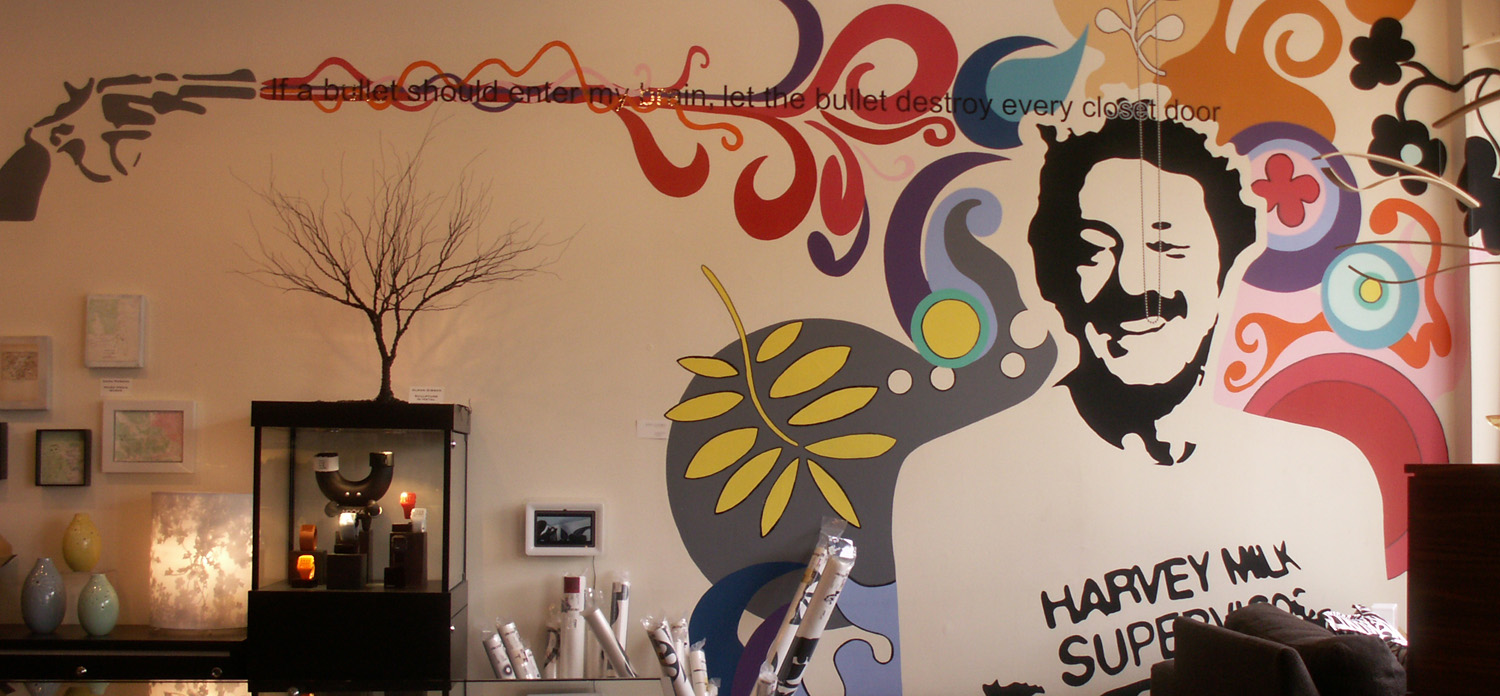
History of Harvey Milk and Cannabis Legalization
As the first openly gay man to be elected to public office in California, Harvey Milk was, and still is, decades after his death, one of the most important figures in LGBTQ+ history.
He made contributions to the gay rights movement through activism, advocacy, and public service. They were pivotal, but perhaps even more valuable is his enduring and resonant message to queer people to own their identity and occupy the social space they deserve.
Given that the two groups have fought for ideals, justice and acceptance, it should come as no surprise that there are deep connections between the LGBTQ+ and cannabis communities. So while the 20.4. While this will continue to be the celebratory holiday for cannabis lovers, Harvey Milk Day (May 22nd) is another reason to pause and be grateful for the plant’s and Milk’s deep commitment to social justice and equality.
Who Was Harvey Milk?
Harvey Bernard Milk was born and raised in Woodmere, New York. After graduating from college in 1951 with a degree in mathematics, he followed in his parents’ footsteps and enlisted in the Navy. Milk served in San Diego until 1955, when he resigned instead of facing a court-martial after being caught in a park frequented by gay men. He was granted a “dishonorable” discharge. (The Navy, in a U-turn, named a ship after Milk in 2019.)
After working in New York as a financial analyst and later in Broadway productions, Milk eventually became more open about his identity. After living in San Francisco for some time, he moved there permanently in 1972, settling in the city’s gay community known as Castro. He and his partner Scott Smith opened a photography shop there called Castro Cameras.
With his larger-than-life personality and natural people skills, Milk soon became a fixture in the gay community and was dubbed the “Mayor of Castro Street.” He co-founded the Castro Village Association to unite gay business owners, and in 1974, he started the first Castro Street Fair — a community celebration that continues to this day.
After a brief stint in the new administration of Mayor George Moscone and a failed run for state assembly, Milk founded the San Francisco Gay Democratic Club in 1976 to gain more political support. Working with Moscone, he successfully pushed for a restructuring of the city council, called the Board of Supervisors, from broad-based citywide elections to a geographic district format.
This change propelled Milk to a landslide victory in 1977, making him the first openly gay elected official in California and one of the first in the nation.
Photo by Daniel Nicoletta
In his short 11 months in office, one of Milk’s major accomplishments was leading the campaign against Proposition 6, or the “Briggs Initiative,” a proposed ban on gay and lesbian teachers from public schools. At a time when measures for gay rights were being repealed across the country, Milk worked tirelessly alongside professor and author Sally Miller Gearhart to rally support against the ballot initiative. By the end of her campaign, ex-governor Ronald Reagan had publicly opposed the measure, and it was rejected by more than a million votes.
On November 27, 1978, former San Francisco board member Dan White, who had resigned after falling out with Milk and others over several issues, snuck into City Hall with a revolver. He confronted Mayor Moscone and shot him dead before crossing the building to Milk’s office to shoot and kill him.
After a brief trial in which White’s defense relied heavily on the so-called “Twinkie Defense,” he was convicted of first degree manslaughter and sentenced to less than eight years in prison, from which he served just over five before his release. The mild sentence triggered unrest in the gay community.
What has Milk done for cannabis?
“The entire medical cannabis movement is directly indebted to the gay community of San Francisco,” said Steve DeAngelo, lifelong cannabis activist and founder (among many other things) of the social justice reform nonprofit The Last Prisoner Project. “There’s a very, very direct line of debt there.”
Milk’s philosophical view was based on extended justice and caring for all people. Though he famously gave up weed to minimize the risk to his political career, he supported its legalization.
Just three weeks before his murder, Milk helped pass Proposition W, a non-binding ballot initiative that effectively decriminalized the cultivation, distribution, and possession of cannabis.
The driving force behind Proposition W was “the father of medical marijuana,” Dennis Peron, a cannabis activist and friend of Milk’s. Peron, who had worked on all of Milk’s campaigns for supervisors, designed Proposition W’s language:
“We, the people of San Francisco, are demanding that the district attorney, along with the police chief, cease arresting and prosecuting anyone involved in the cultivation, distribution or possession of marijuana.”
Using Milk’s political reach, Peron was able to secure the signatures needed to get Prop W on the ballot. It passed with 56% approval and went into effect briefly under Mayor Moscone’s direction that law enforcement should ignore possession of less than an ounce of cannabis. However, after the assassination of Moscone, Dianne Feinstein took over as mayor and ordered the police to ignore Proposition W. Though its time was short, Proposition W was the first of many steps California was taking toward cannabis legalization.
In memory of Harvey Milk
The cannabis movement would not be where it is today without the work and commitment of so many activists, educators, advocates and supporters. Milk once said, “It doesn’t take compromise to give people their rights… it doesn’t take money to respect the individual.” It doesn’t take a political deal to give people freedom.”
On May 22nd, take a moment to remember Harvey Milk and his contribution to the cannabis legalization movement.

Post a comment: